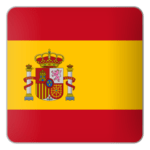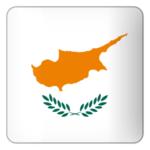
Prior to our departure to France, we were each assigned an European Union member state. We were to prepare a 10 minutes & 10 slides PowerPoint summarizing the background, history, and current position of our states. Today, we finally had our chances to deliver our presentations to other classmates.
The order of the presentation followed the date of accession. From the first enlargement in 1973 by Denmark, Ireland, and the United Kingdom to the most recent accession in 2013 by Croatia, our presentations represented total of 18 distinct member states. Presentation on the six founding nations (France, Italy, Germany, Belgium, the Netherlands, and Luxembourg) was given by Dr. Birchfield in her past lecture.
Below are some highlights of each EU member state presentation, categorized by the year of accession.
First Enlargement (1973)
Following the Treaties of Rome
Emphasis on customs union, single market and agriculture
-
Greece
Itzel Trejo
• Agriculture most important policy area
• Shot down Maastricht treaty with referendum
• Reluctant partner of further integration; increasingly Eurosceptic since 2008 crisis
-
Ireland
Ann-Marie Sills
• Very dependent on EU; benefited more from EU than EU benefited from Ireland
• Economy heavily based on agriculture
• Not too keen on Brexit
-
United Kingdom
Shivali Pandya
• Eurosceptic; not in Shcengen or Eurozone
• Brexit; renewed interest and support for EU
• EU banking and medicine institutions will have to move following Brexit
Second Enlargement (1981)
Green Light from all countries
-
Greece
No presentation given
Third Enlargement (1986)
European Economic Community Renamed as European Community
Groundwork for European Monetary System begins
-
Portugal
Izzy Webber
• Suffered a lot due to austerity measures
• Struggling with slow economic growth and high unemployment
• Small, isolated country supportive of EU
-
Spain
Emilie Mulkey
• Pro-European
• No Eurosceptic parties in Parliament
• Struggling with high unemployment
Fourth Enlargement (1995)
Maastricht treaty established three pillars of EU
Term “European Union” created
-
Austria
Sloan Hodges
• Gives more to EU than they receive from EU
• Euroceptic but does not plan to exit
• Added large number of jobs and tripled exports since accession
-
Finland
Sean Brennan
• Trade is one-third of total GDP, mostly within EU
• First-ranked in press freedom and state stability
• 60% EU support despite Eurosceptic Nationalist Populist Party
-
Sweden
Gavin Hudnall
• Large energy from renewable sources
• Not part of NATO or Eurozone
• Positive view of EU; received more refugees than any other European nation
Fifth Enlargement (2004)
Big Bang Enlargement
Amsterdam treaty Gave legal power to Schengen Accord
-
Cyprus
No presentation given
-
Czech Republic
Hannah Kitzmiller
• Now known as Czechia
• Citizens do not want to stay in EU
• Corruption and bad leadership during Czechia’s turn in rotating presidency
-
Estonia
Emily Finger
• High Human Development Index
• Policy goal of developing efficient Digital Single Market
• Citizens in support of EU membership
-
Hungary
Kayleigh Haskin
• Highly Eurosceptic government but pro-European citizens
• Past conflicts over press freedom, academic freedom, refugee/migrant quotas
• Will not leave EU for financial support
-
Latvia
Amanda Olenczuk
• Joined to increase financial stability and protection from Russia
• Wants more EU involvement in environmental protection
• Very pro-EU; Euroscepticism from Russian minority
-
Lithuania
Stephanie Gaysowski
• “Baltic Tiger” due to rapid expansion
• Severe aftermath of 2008 global recession
• Very supportive of EU; wishes protection against Russia
-
Malta
No presentation given
-
Poland
Sarah Anderson
• Receives five times more from EU than it gives to EU
• Governmental policies have come under EU scrutiny
• Opposed to immigration; hesitant to conform to EU policies
-
Slovakia
Yeseul Heo
• Refuses to take in more refugees; pressure from western Europe
• Critical of pan-European approach
• Successful after EU membership; economic growth and political stability
-
Slovenia
Rachel Soper
• Conflict with corporate governance
• Not so supportive of EU
• Feels like EU is not giving them enough attention
Sixth Enlargement (2007)
EU institutions more power in asylum and immigration policies
After rejection of constitutional treaty by france and the Netherlands
-
Bulgaria
Sarah Moore
• Very poor; rapidly decreasing population
• Brain Drain; educated citizens leaving country for higher pay and better working environment
• Corruption in government
-
Romania
Mallory Bryan
• Fastest growing economy in EU in 2016
• Content with EU membership
• Plans to join Eurozone and Schengen by 2019
Seventh Enlargement (2013)
After ratification of Treaty of Lisbon
European Union as legal entity
-
Croatia
No presentation given
























